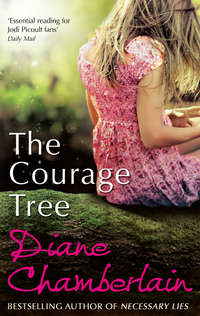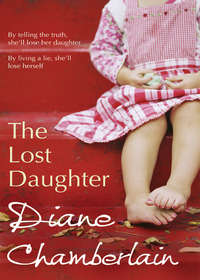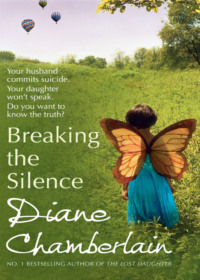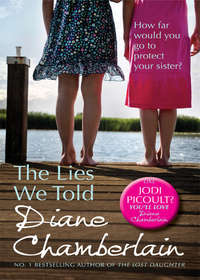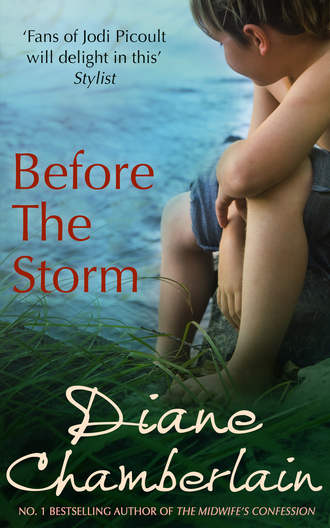
Полная версия
Before the Storm
“Oh God.” Maggie buried her face in her hands, her long dark hair spilling in waves over her arms. I knew she was picturing the scene as I was. Sitting there with Andy, it was easy to forget how devastating the fire had been for so many people. I thought again of Keith. Where was he?
“Did you see anyone else outside beside the person on fire?” the agent asked.
“Emily.”
“Okay. So you went back in.”
“You went back in, Andy?” I repeated, wondering whatever possessed him to reenter the burning church.
Andy nodded. “I climbed on the metal box and got into the boys’ room and then called for everyone to follow me.”
“And they did?” the agent asked.
“Did they what?”
“Follow you?”
“Not exactly. I let some of them, like my friend Layla, go first.” He pulled the cannula from his nostrils and looked at me. “Do I still have to wear this?”
“A little longer,” I said. “Until the nurse comes back and says you can take it off.”
“So you let Layla go out the window first?” Agent Foley nudged.
“And some other kids. Then I followed them. But some were still following me, too.” He wrinkled his nose. “It’s hard to explain.”
“You’re doing fine, sweetie,” I said.
“How did you know the…metal box was there?” the agent asked.
“I don’t remember.”
“Try to remember,” I said.
“I saw it when I went to the bathroom.”
“When was that?” the agent asked.
“When I had to pee.”
Agent Foley gave up, closing his notepad with the flick of a wrist.
“Sounds like you are a hero, Andy,” he said.
“I know.”
The agent motioned me to follow him. We walked outside the curtained cubicle. He looked at me curiously.
“What’s his, uh, disability?” he asked. “Brain injury?”
“Fetal Alcohol Spectrum Disorder,” I said, the words as familiar to me as my own name.
“Really?” He looked surprised, glancing over my shoulder as though he could see through the curtain. “Don’t those kids usually…you know, have a look to them?”
“Not always,” I said. “Depends on what part of them was developing when the alcohol affected them.”
“You’re his adoptive mother then?”
The police on Topsail Island know me and they know Andy and they know our story. An ATF agent in Wilmington, though, was a world away.
“No, I’m his biological mother,” I said. “Sober fifteen years.”
His smile was small. Tentative. Finally he spoke. “You’ve got a year on me,” he said. “Congratulations.”
“You, too.” I smiled back.
“So—” he looked down at his closed notepad “—how much of what he says can I believe?”
“All of it,” I said with certainty. “Andy’s honest to a fault.”
“He’s an unusual kid.” He looked over my shoulder again.
“You don’t need to tell me that.”
“No, I mean, in a fire, seventy-five percent of the people try to get out the front door. That’s their first reaction. They’re like a flock of sheep. One starts in that direction and they all follow. The other twenty-five percent look for an alternate exit. A back door. Bash open a window. Who’s the bald-headed guy he was talking about?”
“I have no idea.”
“Anyway, so Andy here goes for the window in the men’s room. Strange choice, but turns out to be the right one.”
“Well,” I said, “kids like Andy don’t think like that first seventy-five percent, or even the twenty-five percent. It was sheer luck. He could just as easily have gone for…I don’t know, the ladies’ room window, let’s say, and still be stuck there.” I hugged my arms across my chest at the thought. “Do you know if everyone got out okay? I heard rumors that some didn’t.”
He shook his head. “This was a bad one,” he said. “Last report, three dead.”
I sucked in my breath, hand to my mouth. “Oh, no.” Some parents wouldn’t have the luxury of hearing their children tell what happened tonight. “Do you know who?” I thought of Keith. Of Marcus.
“No names yet,” he said. “Two of the kids and one adult is all I know. A lot of serious burns and smoke inhalation. This E.R.’s packed tight as a can of sardines.”
“What’s the metal box?” I asked.
“The AC unit. Whoever laid the fire skipped around it.”
“Whoever…You’re saying this was arson?”
He held up a hand as if to erase his words. “Not for me to say.”
“I know there was an electrical problem at the youth building. Could that have affected the church?”
“There’ll be a full investigation,” he said.
“Is that why you asked Andy if he saw anyone else outside the church?”
“Like I said, there’ll be a full investigation,” he repeated, and I knew that would now be his answer, no matter what question I asked.
I opened the curtain around Andy’s bed once I returned to his cubicle, and noticed a man sitting on the edge of a bed on the other side of the room. His head was bandaged and his T-shirt-clad broad shoulders drooped. When he looked up to say something to his nurse, the movement made him wince. I recognized the dark hair, the thick-lashed brown eyes. He passed a tremulous hand over his face and I saw the sheen of tears on his cheek.
Andy’s nurse was listening to his lungs. She asked him to breathe deeply. To cough. I took that moment to whisper to Maggie.
“Ben Trippett’s over there,” I said. Ben was a volunteer firefighter, twenty-seven or twenty-eight. He was also Andy’s swim-team coach and I wasn’t sure how Andy would react to seeing him there, injured and upset.
Maggie started as if I’d awakened her from a dream, then followed my gaze to the other side of the room. She knew Ben fairly well, since she coached the younger kids’ swim team.
Maggie got up, and before I could stop her, walked across the room toward Ben. He’d be embarrassed that we’d seen him crying, but Maggie was seventeen and I had to let her make her own errors in judgment. Her back was to me as she greeted Ben and I couldn’t see his reaction. But then she pulled a rolling stool close to the bed and sat down and they talked, both of them with their heads bowed as though they were sharing a prayer. Ben’s shoulders shook, and Maggie reached out and rested her hand on his wrist. She amazed me at times. Had she learned that compassion from me, watching me with Andy? I doubted it. All good things about Maggie had been Jamie’s doing. A seventeen-year-old girl finding it in herself to comfort a grown man. I was, for just a moment, in awe of her.
Andy’s nurse straightened up. “Let me take your vitals and then I’ll see about getting you discharged,” she said.
Andy stuck out his left arm for the blood pressure cuff.
“Your other arm, Andy,” the nurse said. “Remember? You need to be careful with the burned arm for a few days.”
She took his blood pressure and temperature and then left us alone.
“I’m going to write a book about being a hero,” Andy said, as I reached beneath the bed for the plastic bag containing his shirt and shoes.
“Maybe someday you will.” I considered bringing him down to earth a little, but how often did he get to crow about an accomplishment? Other people would not be so kind, though.
Opening the bag, I recoiled from the pungent scent of his clothes. “Andy, what you did tonight was very brave and smart,” I said.
He nodded. “Right.”
I thought about letting him leave the hospital without his odorous shirt or shoes, but it was chilly outside. I handed him the striped shirt.
“But the fire was a very serious thing and a lot of people were hurt.” I hesitated. It was best that he heard it from me. “Some died.”
He shook his head violently. “I saved them.”
“You couldn’t save everyone, though. That’s not your fault. I know you tried. But don’t talk to people about how you’re a hero. It’s bragging. Remember, we don’t brag.”
“Is it bragging if it’s in a book?”
“That would be okay,” I said.
Behind me, the glass door plowed open and I turned to see Dawn Reynolds fly through the room toward Ben.
“Oh my God! Ben!” She nearly knocked Maggie off the stool as she rushed to pull Ben into her arms. “I was so scared,” she said, crying. Tears welled in my own eyes as I watched the love and relief pour from her. She and Ben lived together in a little beach cottage in Surf City, and Dawn worked with Sara at Jabeen’s Java.
“I’m okay.” Ben rubbed her arms in reassurance. “I’m all right.”
Maggie quietly stood up, offering the stool to Dawn, then walked back to us.
“Is he okay?” I nodded toward Ben.
“Not exactly.” She bit her lip. “He has a seven-year-old daughter who lives with his ex-wife in Charlotte. He keeps thinking about her being trapped like that. He’s upset that people…” She looked at Andy, then me. “You know.”
“I explained to Andy that some people died in the fire,” I said.
Maggie started to cry again. She reached in her jeans pocket for her shredded tissue. “I just don’t understand how this could happen.”
“I’m going to write a book about it so it won’t be bragging,” Andy said as he pulled on one of his shoes.
Maggie stuffed her tissue in her pocket again. She lifted Andy’s leg so his foot rested on her hip as she tied his shoelaces. “Ben said a beam landed on his head,” she said. “Uncle Marcus was with him.”
Marcus. I remembered what the ATF agent had said: Two kids and one adult. And for the second time that night, my fear and worry shifted from my son to my brother-in-law.
Chapter Four
Marcus
I DIALED LAUREL’S NUMBER FOR THE THIRD TIME as I swerved onto Market Street. Voice mail. Again. Cute, Laurel. Now’s not the time to pretend you don’t know me.
“Call me, for Christ’s sake!” I shouted into the phone.
I still couldn’t picture Laurel letting Andy go to a lock-in, especially one at Drury Memorial.
I’d just come out of that fire pit when Pete ran up to me.
“Lockwood!” He’d only been a few feet away, but he had to shout above the racket of generators and sizzling water and sirens. “Your nephew’s at New Hanover. Get out of here!”
It took a second for his words to register. “Andy was here?” I shrugged out of the air pack and peeled off my helmet. My hands had been rock steady inside the church. Suddenly, they were shaking.
“Right,” Pete called over his shoulder as he raced back to the truck. “Drop your gear and get going. We’ll take care of it.”
“Does Laurel know?” I shouted as I stripped off my turnout jacket, but he didn’t hear me.
I ran the few blocks to the fire station, yanking off my gear along the way until I was down to my uniform. Jumped into my pickup and peeled out of the parking lot. They’d closed the bridge to all traffic other than emergency vehicles, but when the officer guarding the entrance recognized me, she waved me through. I’d tried Laurel at home as well as her cell. Now I called the emergency room at New Hanover. I had to dial the number twice; my hands were shaking that hard. I set the phone to speaker and dropped it in the cup holder.
“E.R.,” a woman answered.
“This is Surf City Fire Marshal Marcus Lockwood,” I shouted in the direction of the phone. “You have a patient, Andy Lockwood, from Drury Memorial. Can you give me a status on him?”
“Just a moment.”
The chaos at the hospital—sirens and shouting—filled the cab of my pickup. Someone screamed words I couldn’t make out. Someone else wailed. It was like the frenzied scene at the fire had moved to the hospital.
“Come on, come on.” My fists clenched the steering wheel.
“Mr. Lockwood?”
“Yes.”
“He’s being treated for smoke inhalation and burns.”
Shit.
“Hold on a sec…”
I heard her talking to someone. Then she was back on the phone. “First-degree burn, his nurse says. Just his arm. He’s stable. His nurse says he’s a hero.”
She had the wrong boy. The words “Andy” and “hero” didn’t go together in the same sentence.
“You sure you’re talking about Andy Lockwood?”
“He’s your nephew, right?”
“Right.”
“His nurse says he led some kids out of the church through the men’s room window.”
“What?”
“And she says he’s going to be fine.”
I couldn’t speak. I managed to turn off the phone, then struggled to keep control of the pickup as the road blurred in front of me. As nerve-racking as the fire had been, it hadn’t scared me half as much as those last couple of minutes on the phone.
Now that I knew Andy was going to be okay, I was royally pissed off. The fire was arson. I had been on the first truck out and done a quick walk around. The fire ring was even on all four sides of the building. That didn’t happen by accident.
I understood arson. I’d been the kind of kid who played with matches and I once set our shed on fire. I tried to blame it on Jamie, but my parents knew their saintly older son would never be that stupid. I don’t remember my punishment—just the initial thrill of watching Daddy’s oily rags explode into flame on his workbench, followed by terror as the fire shot up the wall. So I got it—the thrill, the excitement. But damn it, if some asshole had to start a fire, why a church filled with kids? Why not one of the hundreds of empty summer homes on the island? The building itself was no great loss. Drury Memorial had been on a fund-raising kick for years, trying to get the money to build a bigger church. So, was that just a coincidence? And was it a coincidence that the lock-in was moved from the youth building to the church? Whatever, it felt good to be thinking about the investigation instead of Andy.
Ben Trippett and Dawn Reynolds were coming out of the E.R. as I ran toward the entrance. Now there was a guy who could call himself a hero. As much as I wanted to see Andy, I had to stop.
“There’s the man!” I said, clapping him on the shoulder.
“Dude,” Ben said, with a failed effort at a smile. He leaned against Dawn and in the light from the entrance I saw her eyes were red.
“How’s the head?” He’d been crawling in front of me in the church when something—a joist or a statue or who knew what—crashed on top of him, knocking off his helmet. In the beam from my flashlight, I’d seen blood pouring down his cheek.
“Seventeen stitches.” Dawn pressed closer to him. “Maybe a concussion.”
“You saved at least one life tonight, Trippett,” I said. “You can have my back anytime.”
Truth was, I hadn’t liked going in with him. Ben had been a volunteer for less than a year, and I was sure he wouldn’t last. He had the desire, the ambition and the smarts, but he was claustrophobic. He’d put on the SCBA gear, take that first breath through the face piece and freak out. Full-blown panic attack. The guys razzed him about it. Good-natured teasing at first, but when the severity of the problem became clear, the taunting turned ugly, and I couldn’t blame them. No one wanted to go into a fire with a guy they couldn’t trust. Ben had been ready to quit. Ready to leave the island altogether. But he finally made it through the controlled burn during a training session, and a month or so ago, he told me he was ready to go live.
“You sure?” I’d asked him. “There’s a huge difference between a controlled fire and a live burn.”
“I’m sure,” he’d said. He hadn’t been kidding. He was ahead of me tonight, inching on his hands and knees through the burning church, when his low-air alarm sounded. We’d both started out with full tanks, but nerves made you chew up the air faster and he was running on empty.
“Let’s go!” I’d shouted to him, the words muddy from behind my mask. He heard me, though. I knew he did, but he didn’t turn around. Instead, he kept moving forward and I thought he was losing it. I heard the dull thud of whatever hit his helmet. Heard his grunt of pain. Saw the streak of red on his cheek. “Ben!” I’d shouted. “Turn around!” But he kept right on going.
I called into my radio. “I’ve got an injured man with low air,” I said, but through the murk, I suddenly saw the screen of his thermal image camera. There was someone in front of us. He was going after one of the kids.
The girl had crawled into her sleeping bag and somehow found an air pocket. Ben grabbed her, and together we dragged her from the church. She was unconscious but alive.
“Your boyfriend’s a stubborn SOB,” I said now to Dawn. “But there’s a girl who’s lucky he is.”
“I know,” Dawn said.
“I heard some kids didn’t make it,” Ben said. “I should’ve stayed. Maybe we could have—”
“You couldn’t stay, man.” I gripped his shoulder. “Your head was split open.”
Ben pressed his sooty fingers to his eyes. He was gonna come unglued any second.
“It’s okay, buddy,” I said. “You did good tonight.” The hospital lights fell on his dark hair and all of a sudden, he reminded me of Jamie. That brawny bulk of him that made me feel scrawny by comparison. Big man with a soft heart.
“Do you hear him, Ben?” Dawn turned to Ben, one hand on his chest. “You did all you could, sugar.” She looked at me. “Do you know how it started?”
“Arson, most likely.”
“Who would do something like that?” Dawn asked.
I shook my head. “Y’all happen to see my nephew inside?” I looked past them through the glass doors of the E.R. “Andy?”
“He’s there.” Dawn touched my arm. “He’s okay.”
Andy sat cross-legged on a bed in the E.R., looking like a skinny little Buddha with a bandaged forearm, and my throat closed up. Laurel sat next to the bed, her back to me, black hair falling out of a barrette. Maggie was curled up at the end of the bed, hugging her knees.
Andy spotted me as I opened the glass door.
“Uncle Marcus!” he called.
I reached the bed in a few strides and leaned past Laurel to hug him. His back felt boyish and narrow—a little kid’s back, though his muscles were tight from swimming. I inhaled the smoke from his hair, unable to speak. Finally, I got a grip on myself and stood up.
“Good to see you, Andy.” My voice felt like sandpaper in my throat.
“I’m a hero,” Andy said, then glanced quickly at Laurel. “Can I tell Uncle Marcus that?”
Laurel chuckled. “Yes,” she said. “Uncle Marcus is family.” She looked at me. “I told Andy that he shouldn’t brag.”
I put an arm around Maggie and hugged her to me. “How’re you doin’, Mags?”
“Okay,” she said. She didn’t look okay. Her face was waxy. Beneath her eyes, the skin was purplish and translucent.
“Don’t worry,” I said, squeezing her shoulders. “He’s okay.”
“Who’s okay?” She was definitely out of it.
“Andy, babe,” I said.
“Oh, I know.” She leaned forward, rubbed her hand over Andy’s knee.
“How about you, Marcus?” Laurel asked. “You’re a mess. Are you okay?”
“Fine,” I said. “But I’d like Andy to tell me why he’s a hero.”
There was no place to sit, so I leaned against the side of Laurel’s chair, hands in my pockets. Andy jumped into the story with a zeal that made me forget my anger at Laurel for not calling me. He was suddenly a storyteller.
Laurel glanced up at me as Andy spun his tale. Our eyes locked for about half a second. She was quick to look away.
Andy was on a roll. “So, I clumb out the—”
“Climbed, sweetie.” Laurel stroked her thumb over his hand.
“I climbed out the boy’s room window and onto the metal box with Emily and then went back in and got everyone else to follow me out.”
“Unreal,” I said. “Like the Pied Piper of Hamelin.”
“Who’s that?” Andy asked.
“The Pied Piper is a man from a fairy tale, Andy,” Laurel said. “Children followed him. That’s what Uncle Marcus meant. You were like the Pied Piper because the children followed you.”
“I thought it was rats that followed him,” Maggie said.
I groaned. “Never mind. It was a bad analogy to begin with.”
Laurel looked at her watch, then stood up. “Can I talk with you a minute?” she asked.
I leaned toward Andy, my hands on the sides of his head as I planted a kiss on his forehead. Breathed in that stench of fire I never wanted to smell on him again. “See you later, Andy,” I said.
I had to run to catch up with Laurel outside the room. She was a jogger—a vitamin-chomping health nut—and she didn’t walk as much as dart. Now she turned toward me, arms folded—her customary posture when talking with me. That was the way I usually pictured her in my mind—arms across her chest like a shield.
“Why the hell didn’t you call me?” I asked.
“Everything happened so fast,” she said. “And look. Keith Weston’s here somewhere.”
Whoa. “Keith was at the lock-in, too?”
She nodded. “He was airlifted. Sara left the fire about the same time I did, but I haven’t seen her.”
“Come on.” I started walking toward the reception desk.
“An ATF agent was here talking to Andy,” Laurel said.
“Good.” They were moving fast. That’s how I liked it.
“He said three people were killed. Do you know who?”
“No clue.” I knew she was scared Keith was one of them. So was I. I touched her back with the flat of my palm. “There were plenty of injuries, I know that much.”
We’d reached the desk, but the clerk was too overwhelmed to be bothered. I stopped a guy in blue scrubs heading toward the treatment area.
“Can we find out the condition of one of the fire victims?” I asked after identifying myself. “Keith Weston?”
“Sure,” he said, like he had nothing better to do. He disappeared down a hallway.
I looked at Laurel. “Is this for real?” I nodded toward the treatment room. “He led other kids out?”
“Unbelievable, isn’t it? But the agent said it was true. I think it was because he didn’t think like everyone else—you know, heading for the front doors.”
“And he has no fear,” I added.
Laurel was slow to nod. Andy had plenty of fears, but she knew what I meant. He had no sense of danger. No real understanding of it. He was impulsive. I thought of the time he dove from the fishing pier to grab a hat that had blown off his head.
The guy in scrubs came back. “He’s not here,” he said. “They took him straight up to UNC in Chapel Hill.”
Laurel covered her mouth with her hand. “The burn center?”
He nodded. “I talked to one of the medics. They induced a medical coma on the beach.”
“Is he going to make it?” Laurel’s hand shook. I wanted to hang on to my anger at her, but that trembling hand did me in.
“That I don’t know,” the guy said. “Sorry.” His beeper sounded from his waistband, and he spun away from us, taking off at a run.
“Is his mother with—” Laurel called after him, but he was already halfway down the hall.
Laurel pressed those shaky hands to her eyes. “Poor Sara.”
“Yeah,” I said. “I’m just thankful Andy’s okay.”
“Oh, Marcus.” She looked at me. Right at me. More than a half second this time. “I was so scared,” she said.
“Me, too.”
I wanted to wrap my arms around her. I needed the comfort as much as I needed to comfort her. I knew better, though. She’d stiffen. Pull away. So I settled for resting my hand on her back again as we headed toward the treatment area and Andy’s bed.
Chapter Five
Laurel
1984
JAMIE LOCKWOOD CHANGED ME. For one thing, I could never again look at a man on a motorcycle without wondering what lay deep inside him. The tougher the exterior, the greater the number of tattoos, the thicker the leather, the more I’d speculate about his soul. But Jamie also taught me about love and passion and, without ever meaning to, about guilt and grief. They were lessons I’d never be able to forget.
I was eighteen and starting my freshman year at the University of North Carolina when I met him. I was pulling out of a parking space on a Wilmington street in my three-month-old Honda Civic. The red Civic was a graduation present from my aunt and uncle—technically my adoptive parents—who made up for their emotional parsimony through their generosity in tangible goods. I checked my side mirror—all clear—turned my steering wheel to the left, and gave the car some gas. I felt a sudden thwack against my door and a meteor of black leather and blue denim streaked through the air next to my window.



